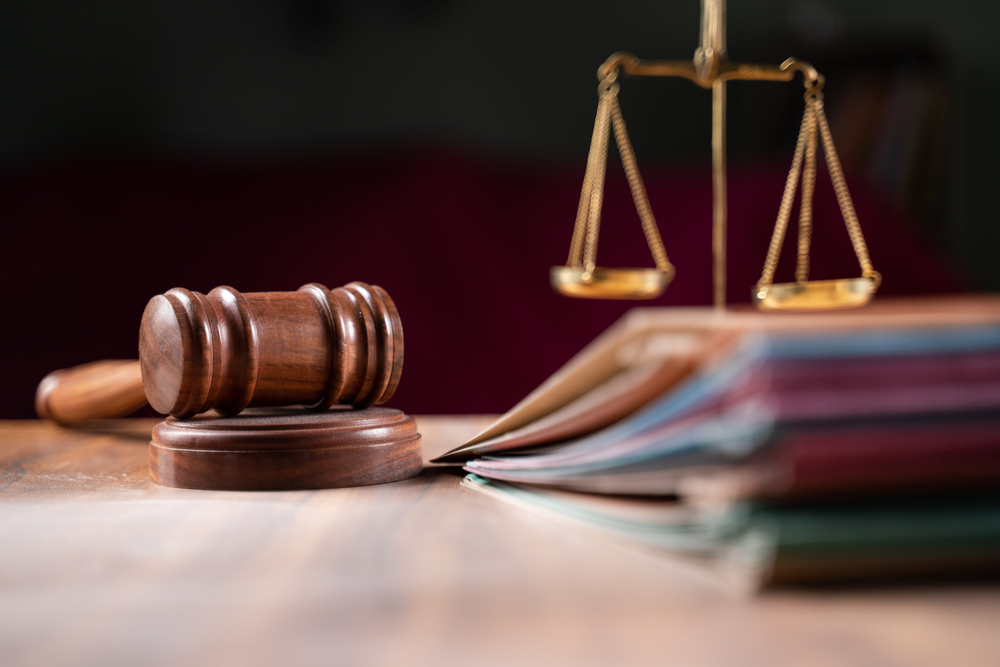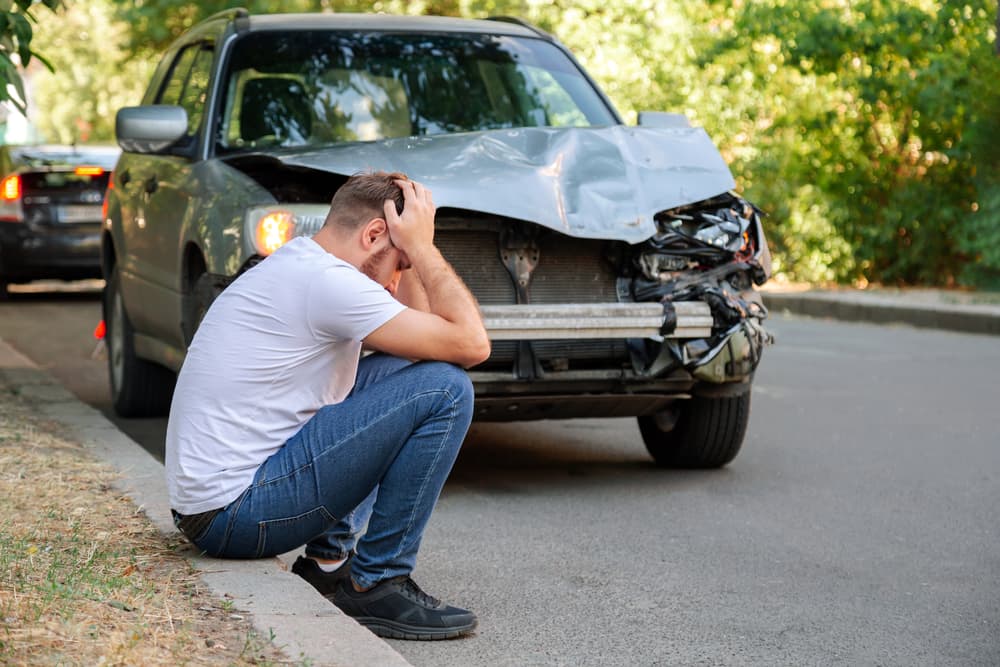
After a car accident caused by someone else's negligence, one of the first questions on your mind is whether your case will end up in court. Most will not.
That’s good news if the thought of a lengthy legal battle, especially when you're already dealing with physical pain, emotional trauma, and mounting medical bills, might cause additional stress.
Let's shed some light on what you can expect throughout this process and why you need skilled legal representation from a car accident lawyer, whether your case settles out of court or proceeds to trial.
Understanding the Claims Process
After a car accident, the first step is typically to file a claim with the at-fault party's insurance company. This involves providing evidence of the other driver's negligence and documenting your injuries and damages.
The insurance company will then investigate the claim, decide whether to accept liability, and offer a settlement.
Insurance companies are businesses, and their primary goal is to protect their bottom line. They may try to minimize your claim's value or even deny it altogether.
Having a knowledgeable car accident attorney on your side can make a significant difference. Your lawyer can handle communications with the insurance company, protect your rights, and fight for the full and fair compensation you deserve.
Factors That Influence Settlement Negotiations
Several factors can impact whether your car accident case settles out of court or goes to trial. These include:
The Severity of Your Injuries
The severity of your injuries is one of the most significant factors influencing whether your car accident case settles out of court or goes to trial. In general, cases involving more severe injuries and higher damages are more likely to end up in court.
If you've suffered minor injuries, such as cuts, bruises, or whiplash, the insurance company may be more willing to settle your claim quickly. They may offer you a settlement that covers your medical expenses and a small amount for pain and suffering.

In these situations, settling out of court can be advantageous, as it allows you to resolve your case faster and avoid the expense and uncertainty of a trial.
However, if you suffer more severe injuries, such as broken bones, spinal cord damage, or traumatic brain injuries, the stakes are much higher. These injuries often require extensive medical treatment, rehabilitation, and long-term care. You may also face significant lost income if you cannot work during your recovery.
In these cases, the insurance company may be less willing to offer a settlement that fully compensates you for your damages. They may minimize the severity of your injuries or argue that some of your medical treatment was unnecessary.
Your car accident lawyer will build a strong case to demonstrate the extent of your injuries and the impact they've had on your life.
If the insurance company refuses to make a fair settlement offer, your lawyer may advise you to file a lawsuit and take your case to court. While this may take a long time, you may need to sue to recover the full compensation you deserve for your injuries and damages.
Liability Disputes
Liability disputes can also significantly affect whether your car accident case settles out of court or goes to trial. Liability refers to who was at fault for the accident and who is responsible for paying damages.
In some cases, liability may be clear-cut. For example, if the other driver ran a red light or was driving under the influence of alcohol, they will likely be found fully at fault for the accident. In these situations, the insurance company may settle your claim, as they know they have a weak case if they try to fight it in court.
However, in other cases, the insurance company may dispute liability. In these situations, your car accident lawyer must thoroughly investigate to gather evidence and build a strong liability case. This may involve interviewing witnesses, reviewing police reports and medical records, and consulting with accident reconstruction experts.
If the insurance company disputes liability, they may argue that you were fully or partially at fault for the accident. They may use this to deny your claim or offer a low settlement. Your lawyer must counter these arguments and present evidence to show that the other driver was primarily or fully responsible for the accident.
If liability cannot resolve through negotiations, your case may need to go to trial. In court, your lawyer will present your case to a judge or jury, who will ultimately decide fault and how much compensation you receive.
Insurance Policy Limits
Insurance policy limits can also impact whether your car accident case settles out of court or goes to trial. Every car insurance policy has limits on how much it will pay for damages and injuries in the event of an accident.
Suppose your damages exceed the at-fault driver's insurance policy limits. In that case, you may need to pursue additional sources of compensation, such as your own uninsured/underinsured motorist coverage or a personal injury lawsuit against the driver.
In these situations, the insurance company may be more inclined to settle for the maximum amount available under the policy rather than risk a jury awarding a higher amount in court. The insurance company is only responsible for paying out up to the policy limits, and the at-fault driver will need to pay the rest.
In these cases, your lawyer may advise you to file a personal injury lawsuit against the driver for additional compensation.
Even if you file a lawsuit, your case may still settle out of court through negotiations with the driver's legal team. However, if you cannot obtain a fair settlement, your case may proceed to trial, where a judge or jury will determine your compensation.
The Insurance Company's Willingness to Negotiate
The insurance company's willingness to negotiate can also significantly affect whether your car accident case settles out of court or goes to trial. Some insurance companies are more reasonable than others regarding settlement negotiations.
If the insurance company will negotiate in good faith and offer a fair settlement that fully compensates you for your injuries and damages, you can resolve your case out of court. This allows you to avoid the time, expense, and uncertainty of a trial.

However, if the insurance company refuses to make a fair offer or engages in bad faith tactics, such as delaying or denying your claim without a valid reason, your lawyer may advise you to file a lawsuit to pursue the compensation you deserve.
Bad faith tactics by insurance companies can take many forms.
For example, they may:
- Refuse to investigate your claim or respond to your lawyer's communications
- Offer an unreasonably low settlement that does not fully compensate you for your damages
- Deny your claim without a valid reason or without conducting a proper investigation
- Fail to pay out a valid claim in a timely manner
- Misrepresent the terms of your insurance policy or the law
If your lawyer suspects that the insurance company is engaging in bad faith tactics, they may advise you to file a lawsuit and pursue additional damages, such as punitive damages, which punish the insurance company for their wrongdoing.
In some cases, the mere threat of a lawsuit may bring the insurance company back to the negotiating table and encourage them to make a fair settlement offer. However, if they still refuse to negotiate in good faith, your case may need to go to trial to be resolved.
The Benefits of Settling Out of Court
While every case is unique, most car accident claims resolve through out-of-court settlements.
Settling offers many advantages:
- Faster Resolution: Trials can take months or even years to conclude, while settlements can often be reached in weeks or months. This means you can get the compensation you need to move forward with your life sooner.
- Lower Costs: Litigation is expensive, and the costs can quickly add up, from court fees to expert witness expenses. Settling out of court can help you avoid these costs and maximize your net recovery.
- More Control Over the Outcome: When you go to trial, you're putting your fate in the hands of a judge or jury. With a settlement, you have more control over the terms of the agreement and can ensure that your specific needs and interests are met.
- Guaranteed Compensation: There are no guarantees in a trial. Even if you have a strong case, a jury can still rule against you. With a settlement, you know exactly how much money you'll receive and can plan accordingly.
- Privacy: Trials are public proceedings, and the details of your case will become a matter of public record. If you prefer to keep your personal and medical information private, settling out of court can help you maintain your privacy.
Of course, there are also situations where going to trial may be necessary or advantageous. For example, if the insurance company refuses to make a fair settlement offer or if a court needs to resolve complex liability issues. Your car accident lawyer will advise you on the best course of action based on the unique circumstances of your case.
What to Expect if Your Car Accident Case Goes to Court
If your car accident case does go to trial, here's a general overview of what you can expect:
- Filing a Lawsuit: Your attorney will file a complaint with the proper civil court, outlining your legal claims against the at-fault driver and their insurance company. The defendants will have an opportunity to respond to the complaint and raise any defenses.
- Discovery: Both sides will engage in a formal process of exchanging information and evidence related to the case. This may include depositions (sworn testimony taken out of court), requests for documents, and interrogatories (written questions that must be answered under oath).
- Pre-Trial Motions: Your lawyer and the defense attorney may file motions with the court, such as to exclude certain evidence or dismiss the case entirely. The judge will rule on these motions before the trial begins.
- Trial: The trial itself will typically involve opening statements from both sides, testimony from witnesses (including experts), cross-examination of witnesses, and closing arguments. The judge or jury will then deliberate and render a verdict.
- Appeals: If either side is unhappy with the trial's outcome, they may have the right to appeal the decision to a higher court.
Throughout this process, your car accident attorney will advocate for your rights and fight for the best possible outcome. They will handle the complex legal procedures and present a compelling case on your behalf, whether in settlement negotiations or in the courtroom.
Be Mindful of the Car Accident Statute of Limitations
You face a time limit for filing a car accident lawsuit, known as the statute of limitations. This deadline varies by state but is typically two to three years from the date of the accident or injury.
If you miss the statute of limitations, you cannot bring a claim, no matter how strong your case, so contact a car accident lawyer as soon as possible after an accident. Your attorney will file all necessary paperwork on time and protect your rights throughout the legal process.
Contact a Car Accident Attorney for a Free Consultation
While most car accident cases settle out of court, in some situations, you may need to go to trial. Regardless of your case's path, get a skilled and experienced car accident lawyer on your side.
Your attorney will investigate the accident, gather evidence, negotiate with the insurance company, and advocate for your rights every step of the way. They will also advise you on the best course of action based on your case's unique circumstances and fight for the full and fair compensation you deserve.
If you suffered an injury in a car accident caused by someone else's negligence, don't hesitate to seek legal help. Contact a reputable personal injury attorney today for a free consultation and case evaluation. With the right legal representation, you can focus on your recovery while your lawyer handles the legal process on your behalf.



